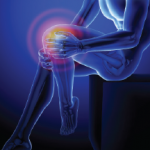Preventing adverse outcomes in individuals who have rheumatic diseases is a daily goal for rheumatologists. For example, rheumatologists prescribe medications and perform screening to prevent erosions in rheumatoid arthritis (RA), renal failure in systemic lupus erythematosus and flares across all diseases. Many of these actions are classified as secondary or tertiary prevention, because individuals have…





